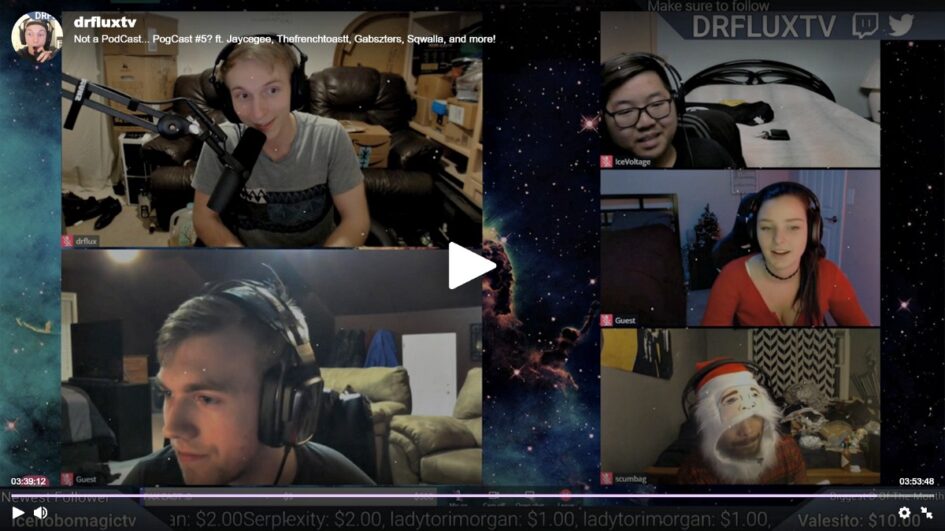Humans spontaneously form villages and have an inherent desire to tell stories.
Wherever and however people gather, others are sniffing around for money.
And predators abound.
Twitch is well on the way to becoming the world’s dominant streaming platform; a quick scan of its history showing phenomenal growth.
Transformative is now an overused term; but in an era where legacy media daily discredits itself and alternatives abound, with a younger demographic which has never been seen to read a newspaper, ways of communicating and acquiring information are changing before our eyes.
Twitch credit now comes as part of your Amazon Prime account.
The decoupling of the platform from gaming since its purchase by Amazon in 2016 for just shy of a billion dollars has allowed anyone with the technical skills to livestream not just their gaming prowess but their entire lives, if they choose.
To build audiences, communities, virtual bars, to make a living doing what they love.
Twitch is an overwhelmingly male-dominated platform, with men making up 81.5% of its user base. Over half, 55% to be precise, are aged between 18–34.
Numbers from TwitchTracker, which collates real-time as well as long-term Twitch statistics, show an inexorable rise in the number of average concurrent viewers and channels.
While 2019 is yet half done, this growth shows no sign of abating, with an 17% increase over the 2018 average.
Viewer numbers averaged 1.1 million over 2018, with average concurrent live channels standing at 41,000.
Average concurrent channels and viewers on Twitch, 2012–2019
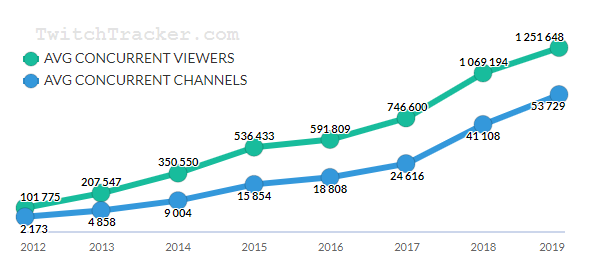
Source: TwitchTracker
By early 2018 came the revelation that that Twitch was attracting more viewers than CNN.
January average concurrent viewers on Twitch showed a record 962k, up 22% from January 2017, and up 26% from December. For comparison, 2017 total day viewership for Fox News Channel and ESPN was ~1.5mm, MSNBC was 885K, and CNN was 783K, putting Twitch squarely among the most-watched U.S. cable channels.
The analytics are immediate:
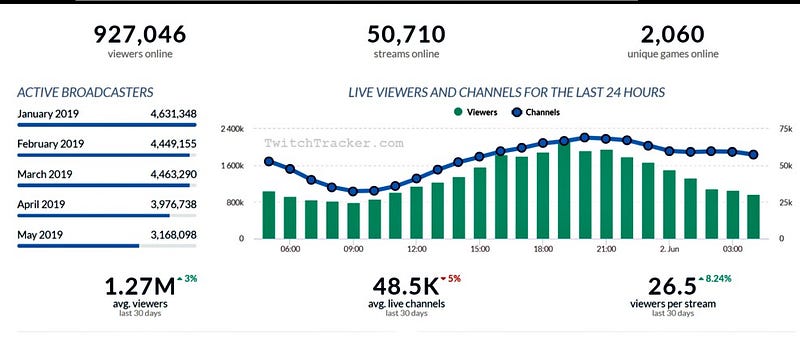
The arrival of other technologies, including Discord and Appear.in, have allowed the set up of virtual bars, and just like a real bar, there are the quiet ones and the born performers; the braggards and the prescient. The trolls, the pests, and the truly dangerous. There are bars full of charming and intelligent people. And the rest.
It is not just a benign world where you can mix with like minded people. Encounter celebrities or become a mini-celebrity yourself. Even make a living.
It is a dark forest.
However abhorrent it was, the live streaming to Facebook of the Christchurch massacre cut new technical ground.
A lunacy has been unleashed.
We see the best and the worst. An ungovernable place.
Swatting

Nothing illustrates the dilemmas of Twitch more strikingly than the dangerous game of Swatting.
It is often linked to Doxxing, which Law Street defines as:
Doxxing, which comes from the word “document,” is the release of an online user’s private information, including but not limited to photo, address, birthdate, and Social Security number. This release is usually done for a particular purpose, for example, to reveal the anonymity of a person online.
Someone who operates under their own name, say a journalist, could also be doxxed, if their personal information is disseminated to the internet. And it’s not just individuals who can be doxxed, as the term can be applied to group membership. But no matter who is doxxed, it’s safe to say that someone who doxxes someone else intends to cause some sort of harm.
For fear of harassment in a world of trolls, both in the real world and online, more experienced streamers go to great lengths to hide their real identities and physical location, including never streaming in front of the fridge, for example, where a bill may be pinned.
Nothing is more creepy than for a female streamer who lives alone to start receiving flowers from someone they don’t know.
A card reading “Black Roses for a Black Day” does not bode well.
A woman who streams as Neeina told A Sense of Place Magazine:
We are way more vulnerable in our real lives than movie stars.
Nobody is worried where Tom Cruise is. He has staff.
Big people have security. Small people don’t.
Streaming itself is so young. It is only seven years old.
I had someone send flowers to me.
I don’t have staff. They are being predatory.
It is a free platform for everyone. We have no power to go against it. I think I should have a defence against them.
Swatting takes online harassment to a new level.
A classic example:
An inexperienced teenager sets up their own channel on Twitch and is delighted to attract followers, applause and a trickle of money.
One way or another they give away their identity and location.
A malevolent actor then alerts the local authorities to disturbing events at the teenager’s address — a woman being attacked, someone making a bomb, escalating the story to the point where a police SWAT Team breaks down the door.
The teenager, with headphones on, hears nothing until the SWAT Team appears next to them in their room.
All on camera. All streamed live.
You’ve been Swatted.
Three perfectly innocent people are reported to have been killed so far in similar scenarios.
Reasons For Success
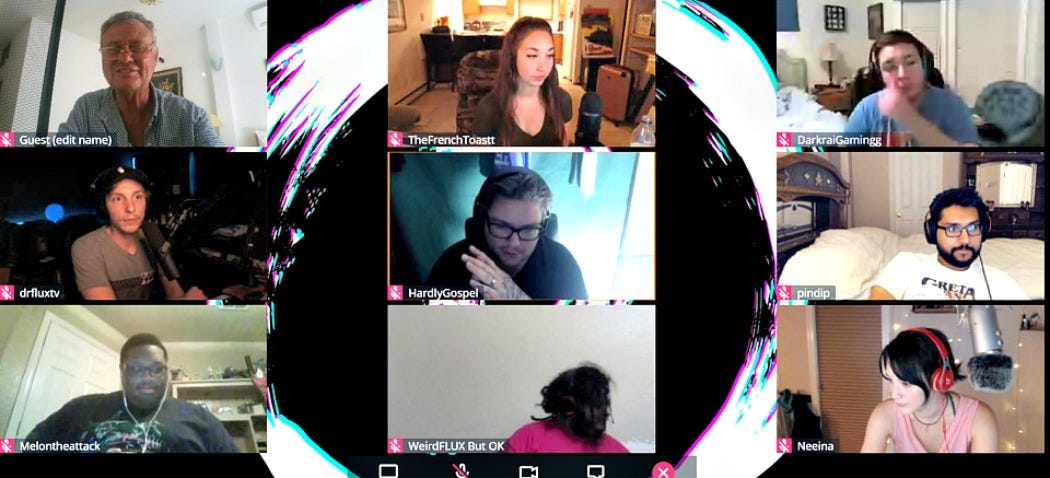
The early history of Twitch is already etched as corporate legend.
Mansoor Iqbal records the basics in The Business of Apps:
Twitch was founded by Justin Kan in 2011, originally as a spin-off of Justin.tv. The latter started life in 2007 as a single channel, live broadcasting Kan’s life around the clock — pioneering the concept of ‘lifecasting’.
What may have seemed extraordinary in the early part of the millennium has become common place as all sorts of people stream large parts of their life straight to the net, be it shopping in the supermarkets of Tokyo or a boys night out in Los Angeles.
The website attracted interest from others who were more interested in broadcasting their own lives than viewing that of Kan’s, which had nonetheless served as great exposure for Justin.tv. Acting on this interest, the site relaunched later in 2007, allowing users to create their own channels and broadcast their own content through the platform.
Hardly Gospel, who like many other streamers on Twitch hides his real identity, live streams, participates in other people’s streams, and is an acute observer of the evolving platform.
“It is the better platform by far for streaming live content,” he told A Sense of Place Magazine.
It is better by far than YouTube because of the community tools. There are easier ways to sort out the viewing experience you want. You type in the game or type of content you want.
In YouTube there is no way to sort what sort of content you are looking for; and none of the group aspects.
It is also much easier for smaller streamers to get a foot up.
YouTube also suffers from a number of other constraints, particularly its restrictions on what can or can’t be said.
Hardly Gospel says the concept of hate speech is a product of Silicon Valley; Twitter, Facebook, YouTube, Google are all in what is becoming known as the axis of evil, of censorship.
They all have the same terms of service, which revolves around prohibitions on the use of hate speech — which is incredibly hard to define and up to the individual to determine.
Hardly Gospel says while Social Justice Warriors are trawling Twitch looking for streams to complain about, it is nowhere near as restrictive as YouTube.
As the pendulum has swung far to the left everyone has become aware that it is problematic.
I am not a conservative, but I can see why the conservatives are coming out ahead the world over. The outrage deplatforming culture is many ways responsible for the right being elected.
The left are losing their minds and expecting the ridiculous from everybody.
It robs people of the ability to tell jokes.
The left love being outraged. I don’t want to live in a society where I have to watch everything I say for fear of being cancelled.
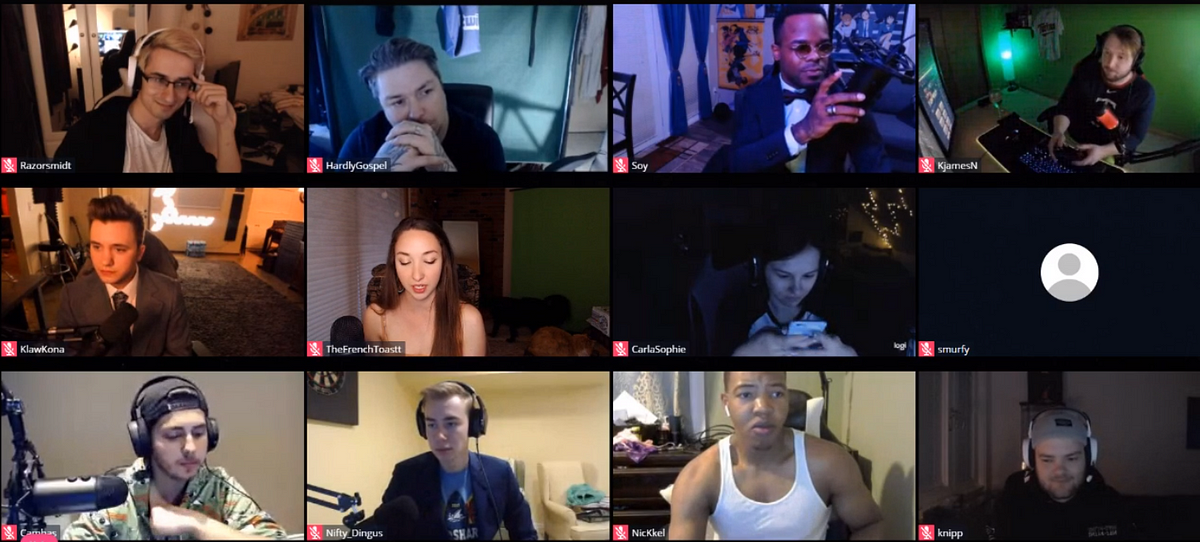
Streamers constantly complain of being taken down from YouTube for minor slips of discipline.
For instance, if you sing with your own voice any song that is in copyright the algorithms will automatically demonetise you.
And if you use fowl language you are demonetised. You have to be family friendly.
Almost no one is family friendly on Twitch, which allows you to stream regardless of whether you are edgy.
Another of the draws is that it is easier to monetize on Twitch. You only need three concurrent viewers over 30 days to become an affiliate, which is how you monetize.
That is a step under a Partner. A Partner can monetize through advertising; running ads which Twitch provides. The more viewers a streamer has the more money they get.
At the opposite end of the myriads of small streams, the platform is also attracting celebrities in their own right.
Herman Li of DragonForce now streams to Twitch, as does US rapper Soulja Boy and songwriter Post Malone.
Ozzy Man Reviews, who has 3.7 million followers on YouTube now streams to Twitch, where he has 226,000 followers.
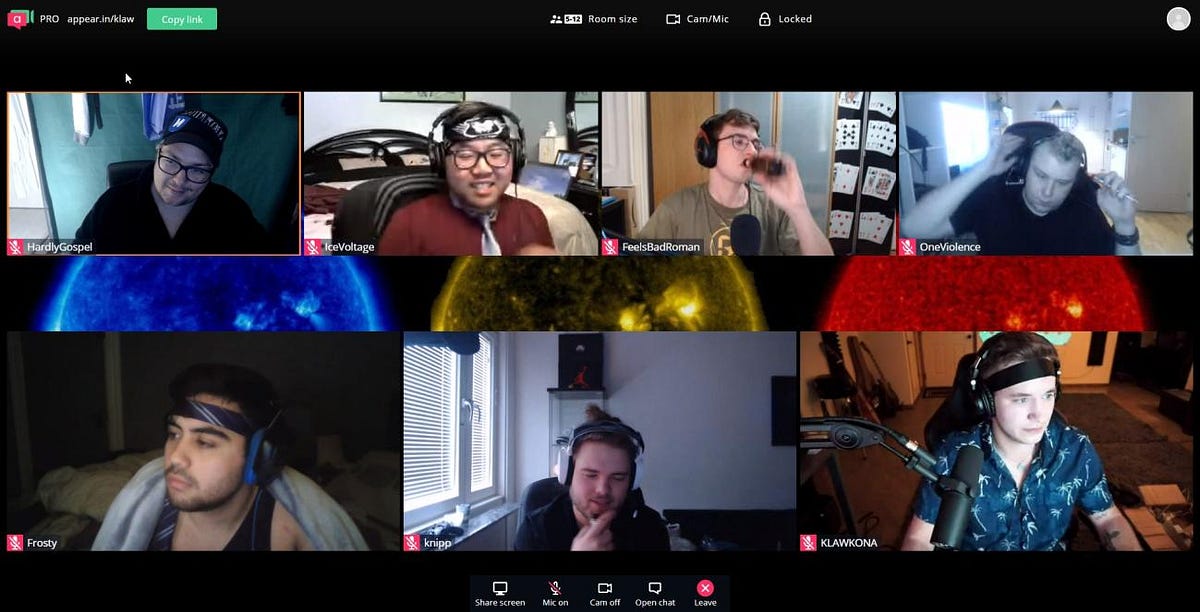
Australian-born comedian Isaac Butterfield now also streams to Twitch, where he attracts thousands of viewers.
American celebrity Andy Milonakis travels around the world and Twitches his career, making money along the way.
They are personalities on Twitch. They don’t need the money.
But plenty of others do.
Streamers on Twitch are there for as many different reasons as there are personality types.
Here’s a small sampling spoken to by A Sense of Place Magazine:
Pindip:
I am on Twitch just for selling and marketing. It is at the point where we have a community. But Twitch is a business after all. The incentive is to give people their own voice. Their actual motivation is money.
Dr Flux TV:
Deep down at the most personal level I have always been an entertainer. The only thing I ever wanted to do was make people happy. The words “I love your stream” can see me through hard times. I have a fulltime job. I am on Twitch to make people happy.
Claire (TheFrenchtoastt):
I have been streaming since February, 2018. I have been able to quit my job and pay the rent. I am more of a creator than a consumer. I have always liked the idea of connecting, to be able to have a community sense. It has been a rollercoaster, but it is super fun.
In Another Realm: The Virtual Bar
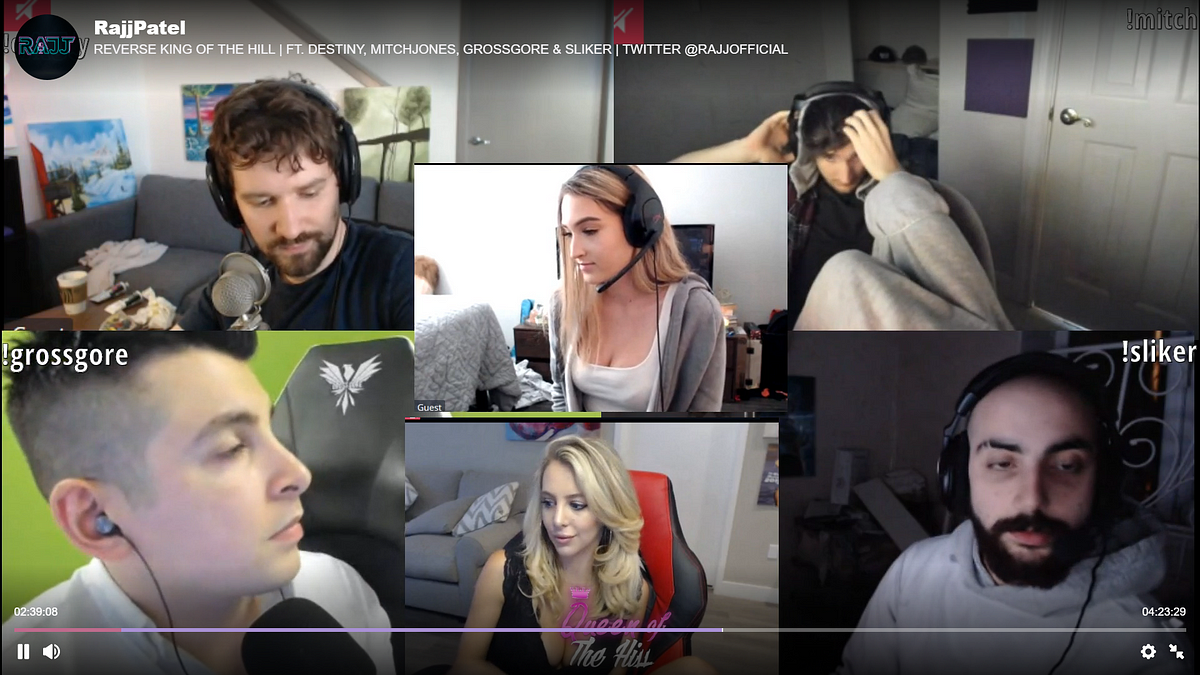
As Joseph Campbell wrote in his classic The Hero With A Thousand Faces, many people who lack their own village recreate villages wherever they go. Thus they gather with each other at crossroads, or at a certain cafe, the bakery, the breakfast-place, at the curb or on street corners, all to “jape and jaw,” that is to talk long-windedly and jokingly with one’s peers about each other’s latest exploits.
And in between the exploits, they tell all the old personal and mythic stories each can remember, which have been passed down or which they have discovered of their own accord.
These are all reassertions of tribal story gatherings.
Even in a dark forest full of trolls, people gather, for confirmation, to gossip, to laugh, relax, fall in love.
There is an old Peruvian saying:
We become a person amongst persons.
Now the 21st Century and the rapidly evolving technology has seen the rise of what amounts to virtual bars, people in groups talking at length about anything and everything, joking with each offer.
The community aspect is strong.
All the biggest content creators on Twitch are alcoholics. You lose your inhibitions, you’re more funny, edgy, witty, and as far as the viewers are concerned, your content is better.
Not everyone is a pisshead, but most of them.
Drinking games are big, although not condoned or endorsed. There are power hours, where everyone takes a sip every minute.
There is a new generation of people who, rather than going to pubs or bars, are firing up a virtual bar.
They are saving money in the process and it is becoming a thing; bigger and bigger every day.
It is good for people who work, have long hours, social anxiety. A lot of people on Twitch have anxiety and are using the platform to get past their mental health issues.
One of the upsides is it gives people who have difficulty finding or making friends outside their house a space where they can go to and get to know people online.
More and more people are finding they don’t have to leave their home. But through their computer the bars are always open, people can always drop in to see if anyone is around.
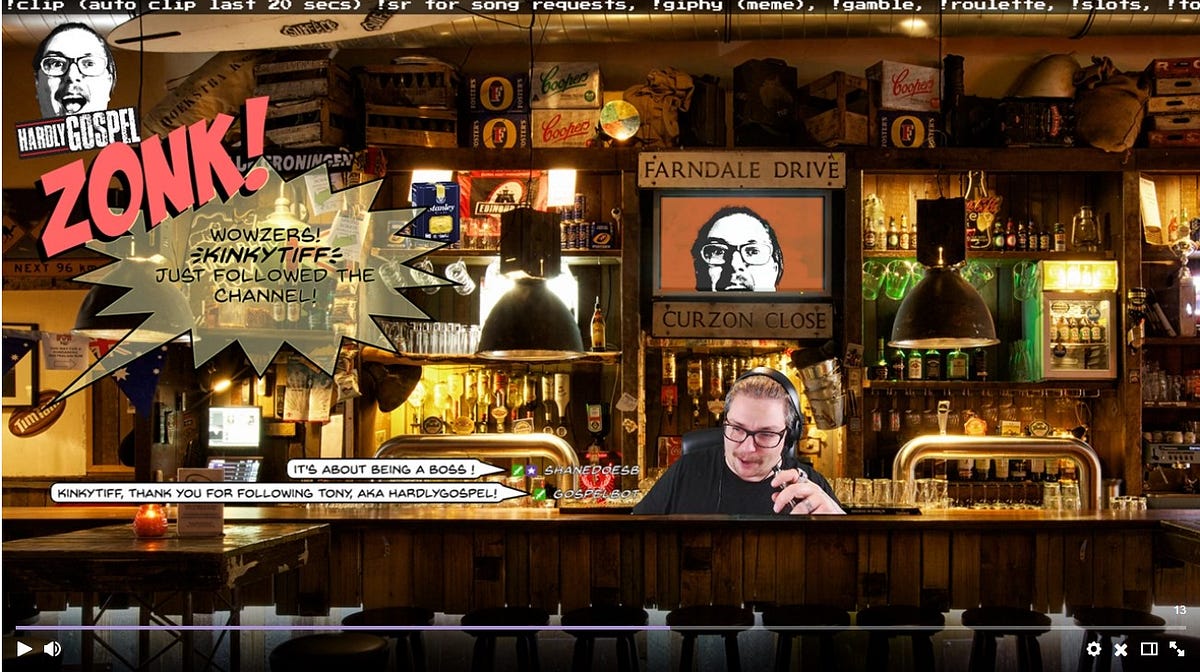
Written and compiled by John Stapleton, editor of A Sense of Place Magazine. A collection of his journalism can be found here.
